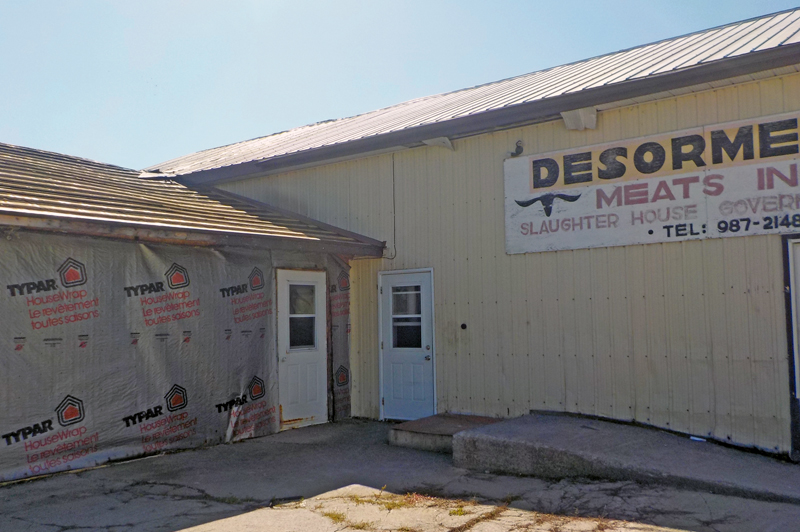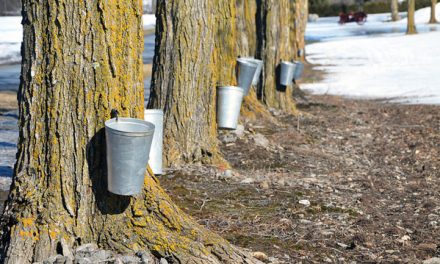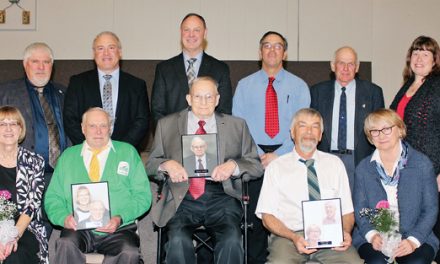Under pressure
The renovation for the previously owned Desormeaux slaughterhouse acquired by Winchester farmer Brian Vandenberg has seen numerous challenges for the rebuild. Van Dusen photo
CRYSLER – Reconstruction and expansion is expected to soon be underway at Desormeaux Meats & Slaughterhouse gutted by fire some six months ago shortly after it was acquired by Winchester farmer Brian Vandenberg.
Although many area producers used to small abattoirs closing shop suspected it wouldn’t reopen, Vandenberg’s intention was always to resume operations. Now he’s looking at Nov. 11 as the date for the rebuild to begin.
“Remembrance Day is a very important date for me this year but not just for the usual reason,’’ Vandenberg said of his often-frustrating project. While he had predicted reopening in March, he’s now saying it’ll be sometime in the spring before the site along the South Nation River is ready.
A dairy farmer who made the acquisition with the best intentions of doing his bit to keep the fading rural meat processing industry alive, Vandenberg said the look of the front of the new retail section of Desormeaux will be reminiscent of the entrance to a modern dairy operation. He has blueprints together but nothing quite ready to show façade.
Behind the scenes since the fire, Vandenberg has been slogging away, slowly jumping the hurdles put in his path by various regulators and his insurance company. The way he sees it, there`s been a lot of fixing of what isn`t broken, all at his increasing expense.
The regulators include North Stormont Township which eventually issued the building permit, the local fire department with its various requirements, the United Counties of Stormont, Dundas and Glengarry which oversees traffic patterns through the village, South Nation Conservation which controls construction in what is designated a 100-year flood zone, and OMAFRA sifting through the minutia involved in reopening an agri-business which was already long-established.
As an example of just one stumbling block, SNC eventually ordered that the new owner raise the floor of the operation by a foot which threw his insurance off track. After much negotiation, he’s fairly confident insurance will cover most of his costs, which he declined to specify.
Vandenberg calls the process over-regulation and he isn’t the first. Other slaughterhouse operators have been driven out by impractical, conflicting and costly regulations. When he was trying to decide his next move after the fire, Vandenberg canvassed five operating slaughterhouses about rebuilding; they all recommended that he take a pass largely because of ongoing regulatory impediments.
He tried to tap into a few streams of government funding but was disqualified because he would not be operational by a given deadline and because his project wasn`t seen to be innovative enough. Meanwhile, Vandenberg continues to operate his dairy farm with 55 milking head and 260 acres of cropland.
In addition to three staff waiting to come back to work, part of the reason he’s so determined to salvage the slaughterhouse is customer demand, with several calls a week asking if he’ll soon reopen. He redirects those customers to other operators, presuming they’ll return to Desormeaux once the business is up and running.
“I’m counting on customer loyalty and getting every indication it’ll be there when the time comes.’’













